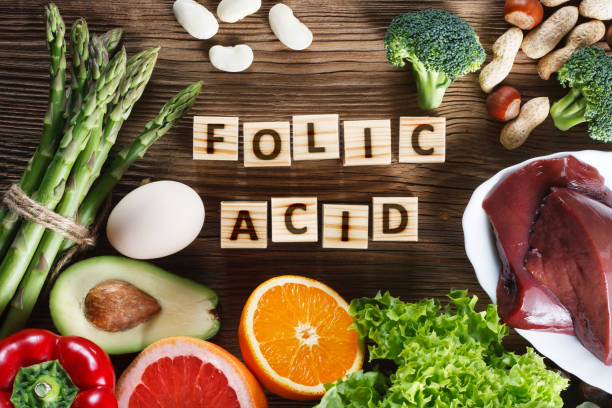Folic acid is the lab-made form of folate, which is naturally present in some foods. Folate is also known as vitamin b9. It is vital for the body as it carries out several functions like producing healthy red blood cells, regulating metabolism, synthesising and repairing DNA, cell division, foetal development during pregnancy, etc. This is why folate is made as a supplement for those who can’t get enough of it from their diet.
Manufacturers also add folic acid to foods like bread, cereal, flour, pasta, etc., as instructed by the Food and Drug Administration (FDA). The supplement is used to treat folate deficiency anaemia and aids in treating several other health conditions.
Dosage
It is easier for the body to absorb folic acid from supplements and fortified foods than folate from natural food. So, the recommended dietary allowance (RDA) for folic acid, according to the Office of Dietary Supplements, is given as dietary folate equivalent (DFE). 1 mcg of DFE is the same as 1 mcg of the natural folate found in food, but 1 mcg of DFE is the same as 0.6 mcg of folic acid supplement.
The recommended dietary allowance of folic acid in adults is 400 mcg. For children and infants, it can range from 65 to 300 mcg, depending on their age and specific condition. Consult your healthcare provider to specify the dosage for your child. However, for pregnant women, the RDA is 600 mcg, and for nursing mothers, the RDA is 500 mcg.
Side Effects of Folic Acid
It is safe for most people when folic acid is taken in recommended doses not higher than 1 mg a day. However, higher doses can cause side effects like nausea, stomach upset, diarrhoea, confusion, irritability, seizures, excitement, depression, bloating, sleep problems and more.
Some research also suggests that taking too much of this supplement for a long time can cause severe side effects. For people with heart problems, it can also increase their risk of heart attack.
Precautions
If you have any allergic reaction to folic acid or folate, do not take it; also, tell your doctor if you have any infection, anaemia, alcoholism or kidney problems. Lastly, tell your doctor if you are pregnant or breastfeeding so you can confirm the best dosage for your condition.



